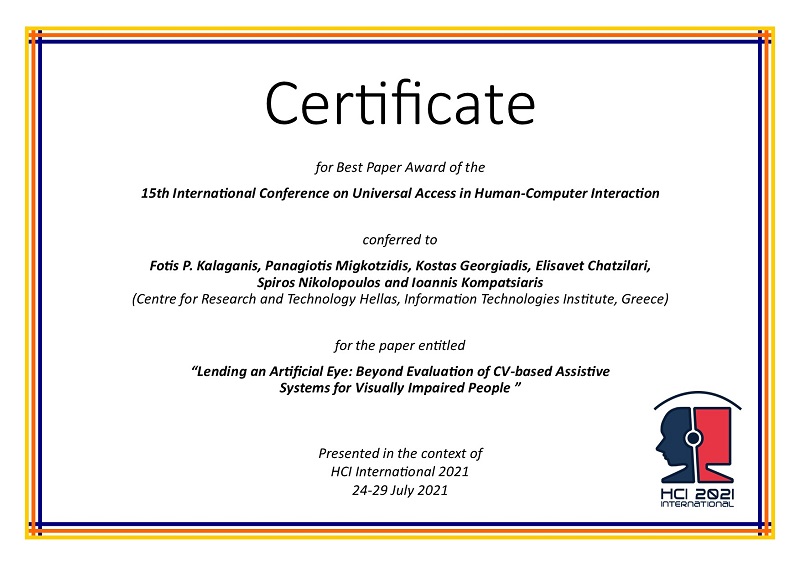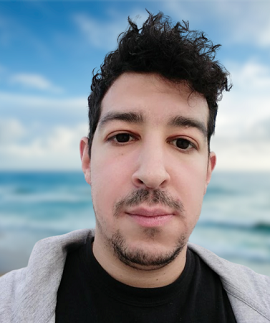
Certificate for Best Paper Award of the 15th International Conference on Universal Access in Human-Computer Interaction
The award has been conferred to
Fotis P. Kalaganis, Panagiotis Migkotzidis, Kostas Georgiadis, Elisavet Chatzilari, Spiros Nikolopoulos, and Ioannis Kompatsiaris
(Centre for Research and Technology Hellas, Information Technologies Institute, Greece)

Fotis P. Kalaganis
(presenter)
for the paper entitled
"Lending an Artificial Eye: Beyond Evaluation of CV-based Assistive Systems for Visually Impaired People"
Presented in the context of
HCI International 2021
24-29 July 2021
Paper Abstract
"The autonomy of the visually impaired, expressed by their ability to accomplish everyday tasks on their own even when help by others is not available, is of paramount importance. Hence, the rapid growth of computer vision in the last decade has given rise to a large number of assistive applications aiming to help the visually impaired in perceiving the world in a similar way to the seeing ones. In this study we investigate the usability of a hybrid system, named e-Vision, that couples the natural and seamless adoption provided by an external camera embedded on a pair of glasses with the processing power and the penetration rate of modern smartphone devices. The ultimate benefit which e-Vision hopes to bring to the visually impaired is greater autonomy, and the increased wellbeing. To assess e-Vision’s performance, a month-long pilot study took place and people with actual visual impairment used the system in their daily lives. This procedure enable the system’s evaluation under real conditions. Although the e-Vision’s evaluation provided indications for a promising system, the obtained results were below our expectations with respect to practical usage. Since the employed computer vision modules were based on state-of-the-art deep learning models capable to achieve top-level performance, we identified the shortcomings and the limitations that typical computer vision-based practices set to the creation of assistive technologies for the visually impaired. Therefore, we propose potential remedies capable of overcoming the identified obstacles in existing practices."
The full paper is available through SpringerLink, provided that you have proper access rights.